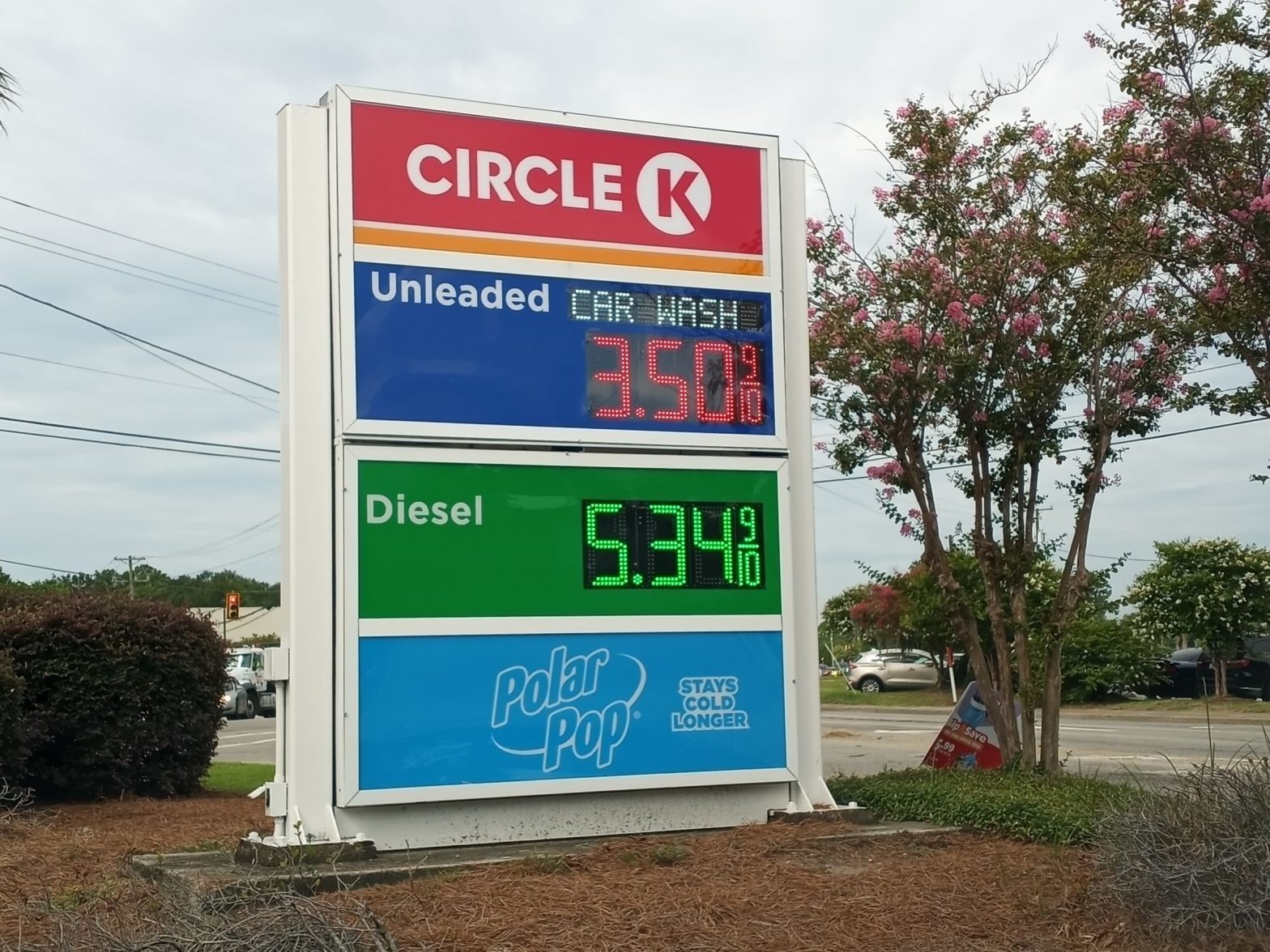Falling Gas Prices Offsetting Inflation Pressures, Providing Relief to Consumers

WASHINGTON — The Consumer Price Index was unchanged in July, a sign that rapidly declining gas prices are beginning to offset the pressures that led to a monthslong surge in inflation.
According to the U.S. Bureau of Labor Statistics, the Consumer Price Index for All Urban Consumers was unchanged in July after rising a seasonally adjusted 1.3% in June.
Over the last 12 months, the index for all items increased 8.5% before seasonal adjustment.
But the good news is, the bureau, an agency of the Labor Department, found that the gasoline index fell 7.7% in July and offset increases in its food and shelter indexes.
In addition, the bureau’s energy index fell 4.6% over the month as the indexes for gasoline and natural gas declined.
The report was greeted warmly by Wall Street where stocks were higher at the opening bell.
By 10 a.m. Wednesday, the S&P 500, Nasdaq and Dow Jones Industrial were all up sharply in early trading.
U.S. government bonds also rallied, with the yield on the 10-year Treasury note falling 0.1 percentage points to just under 2.7%. That’s important because the 10-year Treasury note is considered a proxy for borrowing costs worldwide.
But economist Douglas Holtz-Eakin, who among other things is a former director of the Congressional Budget Office and was economic advisor to Sen. John McCain’s, R-Ariz., 2008 presidential campaign, was unmoved by Wednesday’s report.
“The report is more of the same,” he said in a statement provided to The Well News. “It was easy to expect falling gasoline prices would ease top-line inflation, but core inflation is unchanged and shelter inflation continues to rise. There is no sign of real progress.”
The food index continued to rise, increasing 1.1% over the month as the food at home index rose 1.3%.
The index for all items less food and energy rose 0.3% in July, a smaller increase than in April, May or June.
The indexes for shelter, medical care, motor vehicle insurance, household furnishings and operations, new vehicles and recreation were among those that increased over the month.
Among the indexes that declined in July were those for airline fares, used cars and trucks, communication and apparel.
The all items index increased 8.5% for the 12 months ending July, a smaller figure than the 9.1% increase for the period ending June.
The all items less food and energy index rose 5.9% over the last 12 months. The energy index increased 32.9%, less than the 41.6% increase for the period ending June. The food index increased 10.9% over the last year, the largest 12-month increase since the period ending May 1979.
The Federal Reserve has indicated it intends to keep raising interest rates until there is clear evidence inflation is waning.
Dan can be reached at [email protected] and at https://twitter.com/DanMcCue.
Updated to include quote from Douglas Holtz-Eakin























